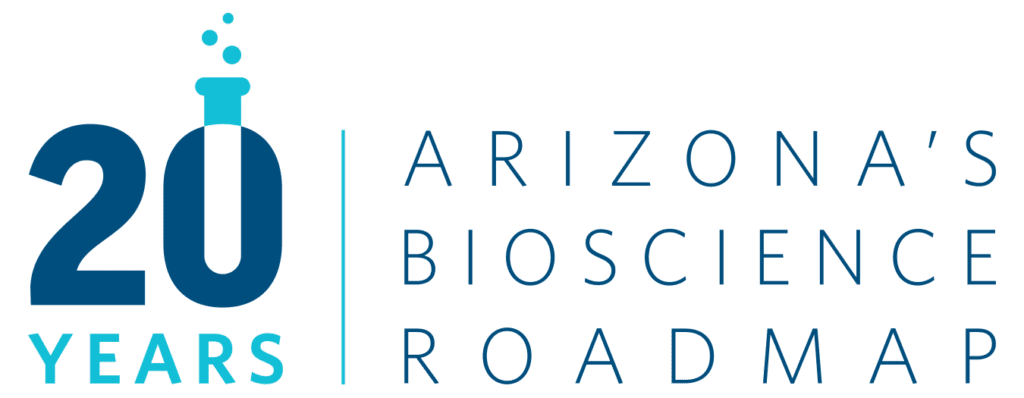
Arizona’s Bioscience Roadmap was officially launched by the Flinn Foundation in a crowded ballroom at the Arizona Biltmore on Dec. 3, 2002.
A public commitment to fund the biosciences for 10 years was made by the foundation—and later extended through 2025—including the commission of an independent study that led to the long-term strategic plan.
At the time, the experts preached patience, but said if Arizona took advantage of its fundamental strengths and followed its plan, then bioscience could become one of the state’s most important sectors.
As Arizona’s Bioscience Roadmap turns 20, the numbers tracked today by TEConomy Partners speak for themselves.
The gold-standard measure of bioscience research strength is National Institutes of Health funding. In 2021, Arizona’s public universities and scientific institutes secured a record $297 million from NIH—225% of its 2002 total and the highest share of NIH nationally since the Roadmap began.
Over time, research becomes patents, licenses, and new technologies and companies, enabling better health outcomes. For instance, in 2020-21 there were 52 new bio spinouts from the state’s universities.
Arizona’s median bio job today pays 31% above the overall private-sector average, and unlike other industries, bio employment never stopped growing even through the Great Recession and a worldwide pandemic.
Critical decisions since 2000 have enabled Arizona’s progress, including the Arizona Legislature’s passage and renewal of the angel investor tax credit and the Technology and Research Initiative Fund (TRIF) as well as funding from the state, cities, hospital systems, philanthropy, and private firms.
And of course, the people of Arizona have made a difference—the bioscience leaders who decided to relocate to Arizona and those who stayed to help drive research and innovation at the state’s leading institutions.
These leading researchers, physicians, educators, entrepreneurs, and executives, such as Jeffrey Trent, Ph.D. of TGen, Dr. Michele Halyard of Mayo Clinic Alix School of Medicine, Kristen Swingle of Critical Path Institute, and Paul Keim, Ph.D. of the Northern Arizona University Pathogen and Microbiome Institute all played a major role in the success of the first 20 years of the Roadmap.
The collaborative nature of the industry, on display at the annual Arizona Bioscience Week in September hosted by the Arizona Bioindustry Association, helps companies grow and raise capital. In 2021, venture capital for Arizona bioscience firms hit a record $240 million—7 times higher than in 2002.
There is more work to be done in the coming years to ensure the continued trajectory of the biosciences in Arizona and improved health outcomes. But as 2022 comes to a close, we celebrate the triumphs of the past 20 years and thank the people whose work and dedication have made Arizona’s Bioscience Roadmap a success.
To help mark the 20th anniversary of Arizona’s Bioscience Roadmap, the Flinn Foundation conducted video interviews with four Arizona bioscience leaders to talk about their work and its impact on Arizona:
Jeffrey Trent, Ph.D., TGen
Dr. Michele Halyard, Mayo Clinic
Kristen Swingle, Critical Path Institute
Paul Keim, Ph.D., Northern Arizona University
Learn more about Arizona’s Bioscience Roadmap, its goals, progress, leaders, and the latest data on key Arizona metrics by exploring the Flinn Foundation website.